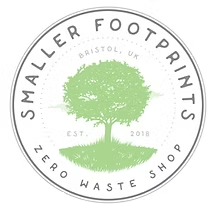First uploaded on 4th July 2024
I, Lily*, recently had the pleasure of visiting Float, our favourite oat milk maker, to watch their fascinating process and ask their founder, Josh, a few questions about the business.
Prior to their opening in 2018, Josh set out looking for a new food-related project which would reduce plastic waste. He came up with the milk idea as it is a staple item in most households and yet there weren’t any non-plastic alternatives available in Bristol at the time.
Josh sought to create a plant-based milk which tastes as close to dairy milk as possible and we can safely say he has succeeded. Their technique starts with high-quality, UK-sourced ingredients and most importantly the oats. He sources naked organic oats from Turner’s of Bytham, a family-run farm in Lincolnshire. These are perfect for oat milk because they contain more oil than other porridge oats, which helps make Float deliciously creamy. He sources organic peas from the same farm, which you could say is their secret ingredient as they add protein and help to balance the flavours.
Josh tells me that their method takes roughly 6 hours and must be performed precisely. It starts with weighing, cooking and keeping ingredients at specific temperatures. Then there is a combination of blending and emulsifying, the enzymatic breakdown stage and the addition of more water and ingredients. Afterwards, it gets filtered and strained and the oat pulp is put in the compost. Next, while they wait for the milk to reach 85 degrees centigrade and its pasteurisation, everyone gets to take a little break before the milk is finally bottled and put in the fridge ready for delivery.
Josh talks about their commitment to the sustainability of their products. Whereas larger companies include packaging costs within their prices, he has established a circular economy, implementing a deposit system with shops and relying on customers to return their bottles to be refilled. Based on returns rates, their bottles are used on average 26 times. Whereas glass can be used almost indefinitely, Tetrapaks are problematic. They have three components which have to be separated before being recycled, incinerated, or sent to landfill. Moreover, Josh’s milk is made to order, which helps keep waste to a minimum.
Here at Smaller Footprints, good communication with our customers normally means we get the weekly order number orders just right. When it does occasionally go slightly wrong, Grant and Andrea tend to fix that, stepping up to the zero waste plate by having a milkshake or two.
Another huge aspect to their sustainability is locality. They use their beautiful blue and white van to deliver their milk solely to Bristol and Bath. You can subscribe to weekly orders and receive their glass bottles of fresh milk directly to your doorstep. Alternatively, you can come into Smaller Footprints, where our fridge is restocked every Thursday afternoon.
All in all, if your goal is to find a milk that reduces your carbon footprint without compromising on taste, Float is for you!
*Lily joined Smaller Footprints via the University of Bristol’s SME Internship Scheme during the summer of 2024. She visited Josh on 28th June.



